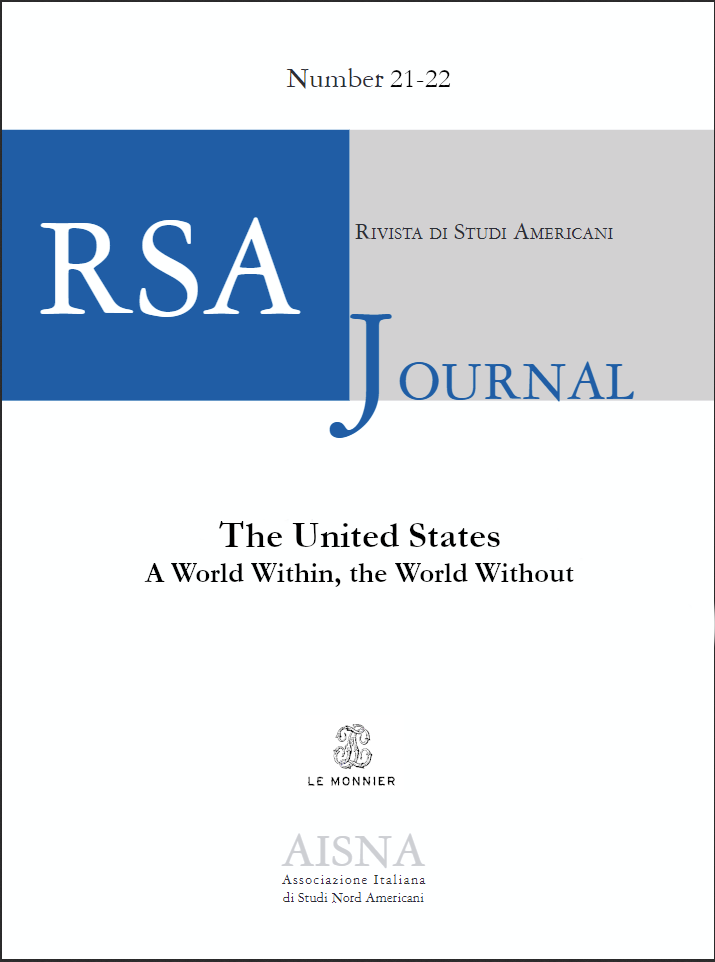The American Connection
The Italian Link to American Studies
DOI:
https://doi.org/10.13135/1592-4467/8718Keywords:
Italian-American culture, American identity, Italian-American studiesAbstract
This essay explains why Italian students should study Italian-American culture as an entre into American studies. It presents a viable beginning in the study of American culture through the Italian immigrant experience and the subsequent evolution of American identities as reflected through various historical moments and cultural developments fostered by Americans of Italian descent. This approach calls for nothing less than moving beyond the immigrant paradigm that for too long has been the major basis for entry into American culture, and into more careful analyses of what it is we so matter-of-factly call the process of assimilation. Earlier ideas for this process of assimilation that once was thought of as a simple melting pot were part of a national myth that we know never really happened, though if you limit your experiences to mass media images it’s easy to see how this myth is propagated. In terms of America’s Italians, the typical images do not reflect the reality below the surface of the media. The study of Italians in the United States has long been a function of social scientists, primarily the anthropologists, historians, and sociologists. To study Italian-American culture is to study both mainstream and margin. Italian-American studies begin in earnest in this country when the scholar, trained in America, begins applying a disciplinary focus to the phenomenon of Americans of Italian descent living in the United States. However, Italian-American studies become realized as a field of study only when the very subjects of earlier studies turn the interpretative gaze back on the scientists and begin studying them and when these encounters become the material for writing about their own experiences. Finally, Italian-American studies become legitimized as a serious field of study when institutions begin developing formal programs of study at the university level. This paper presents some of the key factors in the development of this field of study.
Downloads
Published
Issue
Section
License
RSAJournal will apply a CC BY 4.0 license to all its contributions starting with issue 37 (2026). Previous issues are licensed under a CC BY-NC-ND licence.





